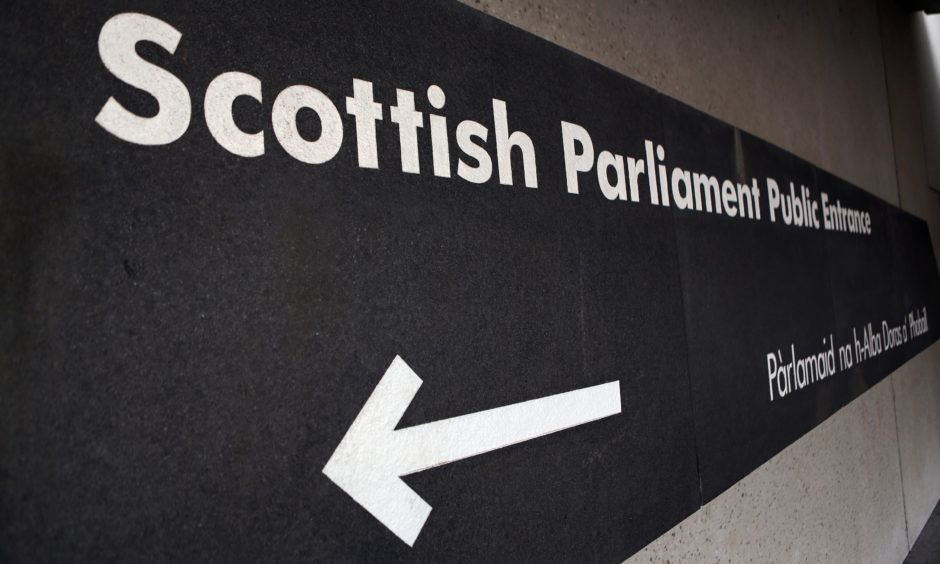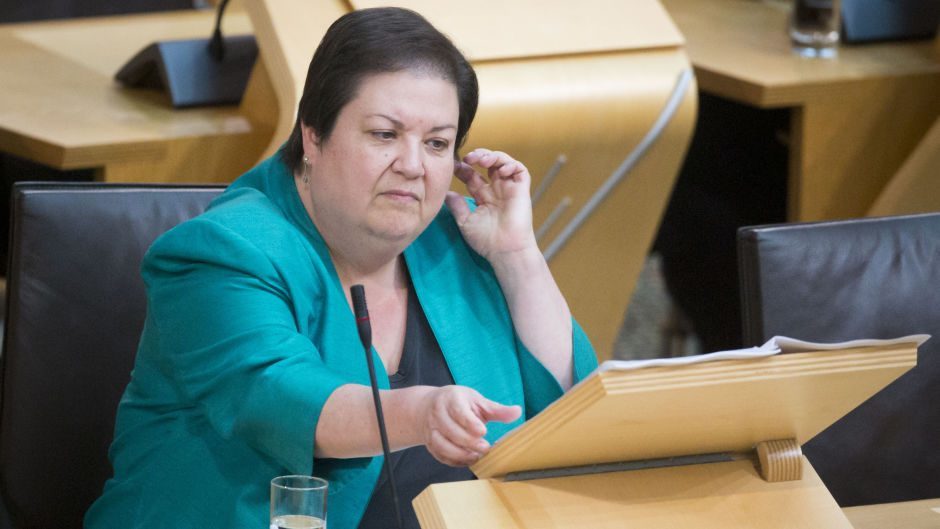Senior Scottish Government officials became aware of legal problems in their civil case against Alex Salmond more than two months before it collapsed, MSPs have heard.
Paul Cackette, the former head of the Scottish Government’s Legal Directorate, told the Salmond inquiry he first knew of the key difficulty which led to the taxpayer paying out more than £500,000 at the end of October 2018.
Mr Salmond won his judicial review on January 8 the following year when the Scottish Government conceded the case.
Giving evidence to the Salmond inquiry, Mr Cackette admitted the time taken to concede the case had added to the expense.
Asked if the extent of the costs reflected that it had taken “some time” for the Scottish Government to concede the case, Mr Cackette replied: “In a sense, yes.”
Court of Session victory
Mr Salmond’s victory came when the Court of Session found the Scottish Government’s investigation into harassment claims made against him was unlawful and tainted with apparent bias.
In a separate criminal trial, Mr Salmond was cleared of all sex offence charges earlier this year.
At the heart of the civil case ruling was the fact that the civil servant charged with investigating the complaints against Mr Salmond – Judith Mackinnon- had previously met with his accusers.
The Scottish Government procedure for handling complaints against current and former ministers states in paragraph 10 that the investigating officer “will have no prior involvement with any aspect of the matter being raised”.
‘A potentially significant issue’
Mr Cackette, who co-ordinated the Scottish Government’s response to the judicial review, was asked by Labour’s Jackie Baillie when he found out Ms Mackinnon had been in contact with the complainers before her appointment as investigating officer.
His answer was the end of October 2018, adding they then began to investigate what that piece of information would mean for the case. Earlier Mr Cackette said he learned of the “potentially serious issue” after a document search when questions were being raised by Mr Salmond’s lawyers.
“I think everybody who was involved realised that this was a potentially significant issue. No-one needed to be told,” Mr Cackette said.
At that stage he did not have a direct discussion with Ms Mackinnon but work was co-ordinated through Ms Evans’s office trying to establish the “factual narrative and circumstances” of the issue were and what it meant.
Ms Baillie responded by suggesting that the permanent secretary “would have conceivably known” about the issue and would have been party to some of the email traffic.
Mr Cackette replied: “Yes, it was certainly her procedure. It was certainly was adopted under her auspices initially, yes.”
In his evidence, Mr Cackette said it was only by January 2 that it became clear it would be “improper” to defend the Scottish Government’s position.
‘A slam-dunk moment’
Tory MSP Murdo Fraser remarked that “something had gone catastrophically wrong” when he asked why it took until January 2019 for the Scottish Government to concede the case.
Mr Cackette said: “It took time to work out what this actually really meant. It wasn’t really in that sense a slam-dunk moment.”
In past evidence to the inquiry, Ms Mackinnon claimed she had always been “upfront” about her contact with the two complainers. She also said she took legal advice from an unnamed government employment lawyer who was connected to the judicial review at an early stage.

The Holyrood committee investigating the Scottish Government’s botched handling of the complaints made against Mr Salmond, also asked about the former first minister’s plea for arbitration to settle the matter.
Mr Cackette said this was rejected for a number of reasons.
“It’s not generally regarded as an appropriate means of resolving a dispute where there is a significant degree of factual disagreement in relation of harassment,” Mr Cackette said.
Cackette added that since the complainers had rejected the chance of mediation, the government was not inclined to go back to them again and ask about the prospect of arbitration.
Mr Cackette acknowledged that the complaints made by Mr Salmond’s accusers had still not been addressed to this day when he was asked about the possibility of arbitration.
‘Public media circus’
Lib Dem MSP Alex Cole-Hamilton asked that if the case had been determined by arbitration could the government have revisited the complaints.
Mr Cackette said: “Yes, I think that’s right and indeed now the situation is that the complaints – because this process was ultimately set aside by a court – the complaints are not yet addressed.”
Mr Cole-Hamilton went on to suggest that it was “highly unlikely” that the complaints would “ever see the light of day” through a government process given the winner-take-all nature of the judicial review and the “public media circus around it”.
Under further questioning, Mr Cackette said he was not aware of ministers or officials threatening to resign over the civil action. But declined to comment when asked by Mr Fraser if senior counsel had threatened to resign.

